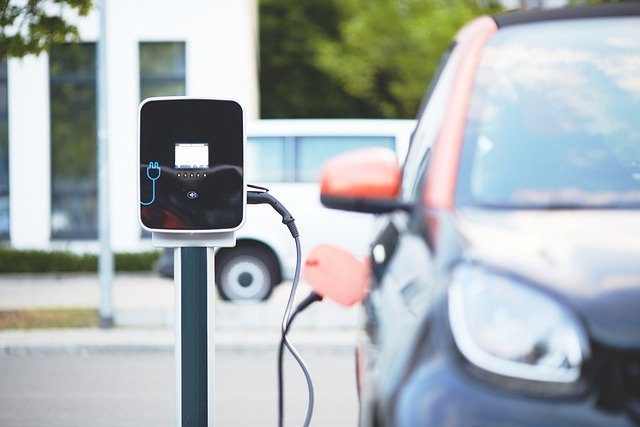Exploring the Reliability of Affordable Electric Cars: A Comprehensive Guide
Electric vehicles (EVs) have transformed from niche products to mainstream transportation solutions over the past decade. As more affordable models enter the market, consumers increasingly question their reliability compared to conventional vehicles. This comprehensive guide examines the dependability of budget-friendly electric cars, addressing common concerns while highlighting the advantages and potential drawbacks that prospective buyers should consider when making the transition to electric mobility.

Exploring the Future of Affordable Electric Cars
The landscape of affordable electric vehicles is evolving rapidly. Just a few years ago, budget-friendly EVs offered limited range and minimal features. Today, manufacturers are producing electric cars with impressive specifications at increasingly accessible price points. Technological advancements in battery production have reduced costs significantly, with battery prices declining by over 85% since 2010. This trend continues to drive down the overall cost of electric vehicles while simultaneously improving their reliability.
Modern affordable electric cars now commonly offer ranges between 150-250 miles per charge, sufficient for most daily commuting needs. Major automakers have committed billions to EV development, ensuring the next generation of affordable electric cars will feature even greater reliability, improved battery longevity, and enhanced driving experiences. As charging infrastructure expands nationwide, these vehicles become increasingly practical choices for budget-conscious consumers.
Discover the Best Options for Budget-Friendly Electric Vehicles
The affordable electric car segment offers more choices than ever before. Several models stand out for their balance of reliability, features, and value. Entry-level options like the Nissan Leaf and Chevrolet Bolt have established track records for dependability, while newer entrants like the Hyundai Kona Electric and Kia Niro EV offer impressive ranges and warranties that reflect manufacturer confidence in their reliability.
When evaluating affordable electric cars, consider not only the purchase price but the total cost of ownership. Electric vehicles generally require less maintenance than their gasoline counterparts—no oil changes, fewer moving parts, and regenerative braking systems that reduce wear on brake pads. Most manufacturers offer substantial battery warranties, typically 8-10 years or 100,000+ miles, providing peace of mind about the most expensive component in the vehicle.
Uncovering the Truth about Electric Car Reliability
Despite common misconceptions, modern electric cars have proven highly reliable in numerous consumer studies. Their simpler mechanical design—fewer moving parts, no complex transmission systems, and elimination of many traditional failure points—contributes significantly to their dependability. The electric motor itself typically requires minimal maintenance throughout its lifespan, unlike internal combustion engines with multiple potential failure points.
Battery degradation, often cited as a concern, has proven less problematic than initially feared. Data from Tesla vehicles shows that modern lithium-ion batteries typically retain 90% of their capacity after 200,000 miles. Other manufacturers report similar durability metrics. Real-world evidence increasingly demonstrates that affordable electric cars maintain their performance and reliability over time, often outperforming gasoline vehicles in long-term dependability metrics.
Common Reliability Concerns and Realities
Prospective buyers frequently express concerns about specific reliability aspects of affordable electric cars. Cold weather performance represents one common worry, as battery range can decrease by 10-40% in frigid temperatures. However, manufacturers have implemented various solutions, including battery thermal management systems and preconditioning features that mitigate these effects.
Electronics and software reliability has improved substantially as the market matures. While early affordable electric models occasionally experienced software glitches, manufacturers now deploy over-the-air updates to address issues promptly without requiring dealership visits. Charging system reliability has also advanced, with standardization making public charging more consistent and home charging solutions becoming increasingly robust and user-friendly.
Cost Comparison of Popular Affordable Electric Cars
When considering reliability, it’s important to examine the financial aspects of electric car ownership, including purchase price, incentives, and operational costs compared to traditional vehicles.
| Model | Starting MSRP (2023) | Est. Annual Electricity Cost | Est. Annual Maintenance | Available Federal Tax Credit |
|---|---|---|---|---|
| Nissan Leaf | $28,040 | $500-$600 | $300-$400 | Up to $7,500 |
| Chevrolet Bolt EV | $26,500 | $450-$550 | $300-$400 | Up to $7,500 |
| Hyundai Kona Electric | $34,000 | $500-$650 | $350-$450 | Up to $7,500 |
| Mini Cooper SE | $29,900 | $500-$600 | $350-$450 | Up to $7,500 |
| Kia Niro EV | $39,900 | $550-$650 | $350-$450 | Up to $7,500 |
Prices, rates, or cost estimates mentioned in this article are based on the latest available information but may change over time. Independent research is advised before making financial decisions.
Long-Term Reliability and Ownership Experience
The long-term ownership experience of affordable electric cars continues to impress early adopters. Consumer surveys consistently report high satisfaction rates among electric vehicle owners, with reliability often cited as a key factor. The simplified maintenance schedule eliminates many routine service visits—no more oil changes, transmission services, or exhaust system repairs.
Battery longevity, once a significant concern, has proven better than expected in real-world conditions. Most affordable electric cars now come with 8-10 year battery warranties, and data suggests many will maintain acceptable performance well beyond those periods. Additionally, as more affordable electric vehicles reach high-mileage benchmarks, the evidence increasingly supports their reputation for durability and dependable operation.
Conclusion
Affordable electric cars have made remarkable strides in reliability, dispelling many early concerns through real-world performance and technological improvement. While no vehicle is entirely without potential issues, the simplified mechanics of electric powertrains offer inherent reliability advantages over traditional combustion engines. With growing model options, improved ranges, and substantial cost savings over vehicle lifetimes, reliable affordable electric cars present compelling options for today’s budget-conscious, environmentally aware consumers. As technology advances and production scales increase, both affordability and reliability will likely continue their positive trajectory.




